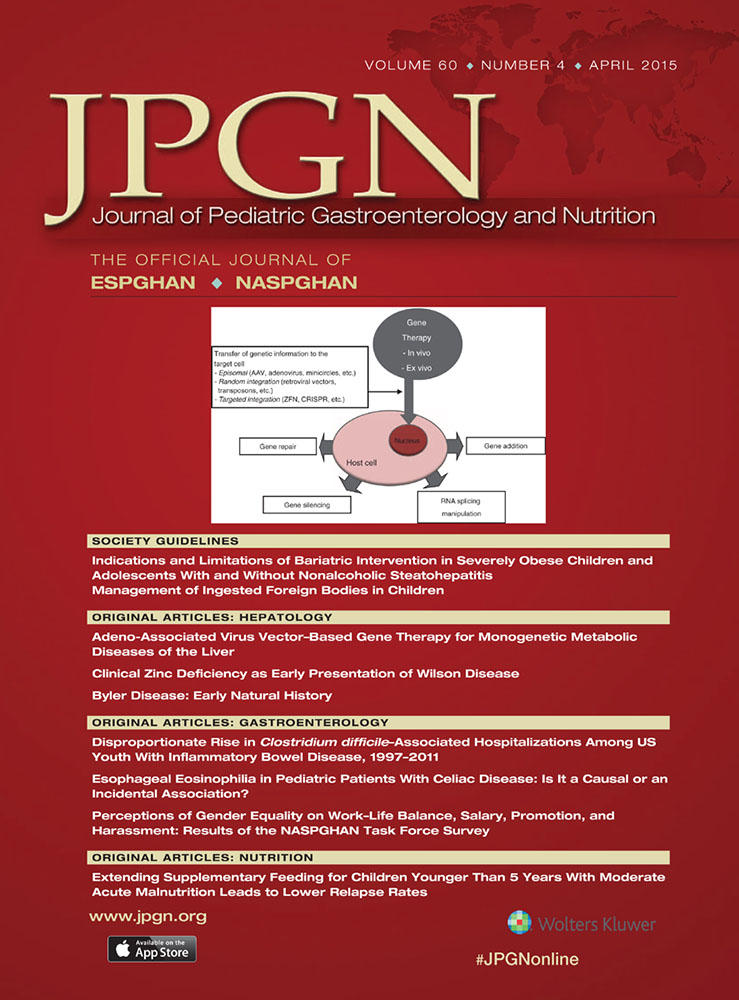Clinical Tube Weaning Supported by Hunger Provocation in Fully-Tube-Fed Children
This study was supported by a grant from the NutsOhra Foundation, Amsterdam, the Netherlands (SNO-T-08-071: Efficacy of hunger provocation for the treatment of pathologic food refusal in young children).
The authors report no conflicts of interest.
ABSTRACT
Background:
Children with congenital malformations, mental retardation, and complex early medical history frequently have feeding problems. Although tube feeding is effective in providing the necessary energy and nutrients, it decreases the child's motivation to eat and may lead to oral aversion. In this study, we sought to confirm our previous results, showing that a multidisciplinary clinical hunger provocation program may lead to quick resumption of oral feeding.
Methods:
In a crossover study, 22 children of 9 to 24 months of age who were fully dependent on tube feeding were randomly assigned to one of two groups: group A, intervention group (2-week multidisciplinary clinical hunger provocation program); and group B, control group (4-week outpatient treatment by the same multidisciplinary team). Patients failing one treatment were reassigned to the other treatment group. Primary outcome measures were at least 75% orally fed at the conclusion of the intervention and fully orally fed and gaining weight 6 months after the intervention.
Results:
In group A, 9/11 patients were successfully weaned from tube feeding (2 failures: 1 developed ulcerative colitis, 1 drop-out). In group B, only 1 patient was weaned successfully; 10/11 were reassigned to the clinical hunger provocation program, all being weaned successfully. Six months after the intervention, 1 patient had to resume tube feeding. In total, in the control group, 1/11 (9%) was weaned successfully as compared with 18/21 (86%) in the hunger provocation group (P < 0.001).
Conclusions:
Multidisciplinary clinical hunger provocation is an effective short-term intervention for weaning young children from tube feeding.




